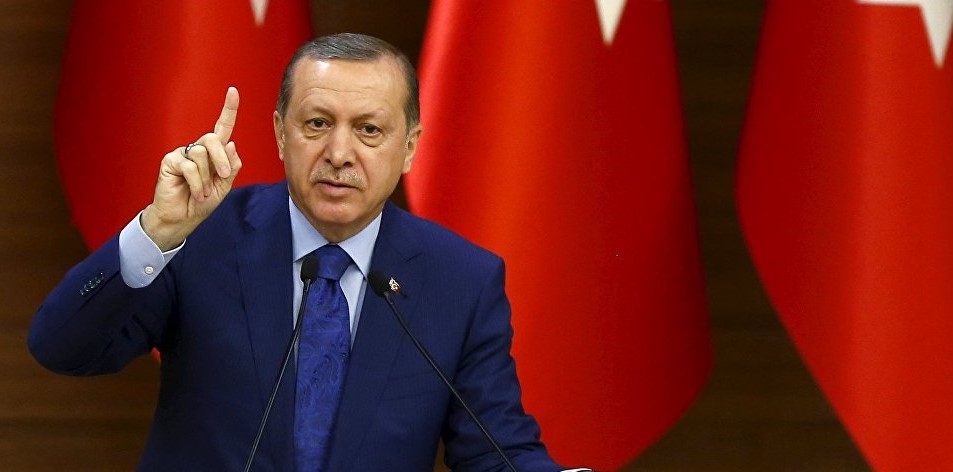Turkey’s retaliatory sanctions on the US
August 8, 2018 | Expert Insights

Turkey threatens to freeze the assets of American officials in retaliation to the United States imposing sanctions on the Turkish Interior and Justice Ministers.
Background
Turkey is a moderately conservative Islamic country which straddles two continents and is the bridge between Europe and Asia. It controls the two straits of Dardanelle and Bosphorous, making it the single most important geo-strategic partner for the United States in Western Asia. The Turkish Republic, founded by Mustafa Kemal is a stable, secular democracy which focuses on tolerance and greater freedom for women.
Turkey has remained a close ally of the United States, supporting it in the War on Terror. In recent years, however, the alliance has begun to strain as Turkish President Recep Tayyip Erdogan has eroded democratic policies and processes in his country. Turkish officials and pro-government media continue to fuel anti-Americanism, going so far as to threaten hitting U.S. forces in Syria.
Analysis
As we previously analysed,
there are two major reasons for the US-Turkey tensions of today. The US has embedded about 300 soldiers in Syria with the YPG, a branch of the Kurdistan Workers' Party (PKK) which has been deadlocked with Turkish troops in a decades-long guerrilla warfare over state repression and denial of Kurdish rights. Kurdish territorial gains over the past two years have alarmed Turkey, making it fearful of the prospects of a similar scenario in dozens of Kurdish provinces within its own borders.
Another central argument between the two countries concerns the fate of a Turkish cleric, Fethullah Gulen, who lives in exile in Pennsylvania. Turkish officials have described Gulen as the architect of the failed coup in the summer of 2016 and demanded his extradition from the United States. American officials contend that the Turkish government has failed to provide enough evidence to warrant extradition. An American pastor, Andrew Brunson, was detained in October 2016, accused of associating with the coup plotters.
Secretary of State Mike Pompeo made it clear that the United States has imposed sanctions to show a seriousness of intent. Secretary Pompeo reiterated the United States’ stance on Pastor Brunson after a meeting with his Turkish counterpart, Mevlut Cavusoglu. He also highlighted the importance of the historic bilateral relations and Turkey’s membership in NATO, calling Turkey “a NATO partner with whom the United States has every intention to continue to work with cooperatively.”
It is imperative to note the extent of these sanctions are limited to the ministers of the targeted departments only, and unlike an economic blockade, they do not negatively impact the day to day life of the common Turkish or American citizen. President Trump’s decision to sanction Minister of the interior Suleyman Soylu and Minister of Justice Abdulhamit Gul is a direct expression of a seriousness of intent. White House officials, including Vice President Pence, have repeatedly pressed Turkey to release Pastor Brunson.
As stated earlier by Secretary Pompeo, this dispute should be resolved within the next few days, but if the deadlock should persist, we can expect a new era in American-Turkish relations, one which is marred by distrust but held up together in an uneasy alliance because of overlapping strategic interests.
Counterpoint
Despite President Erdogan’s threats, it would appear that both countries are announcing new sanctions in a largely symbolic effort to secure their respective conservative bases. Public opinion on both sides of the aisle are heavily skewed, which is the driving force behind the sudden antagonism to each other. The United States cannot afford to lose a vital foothold in West Asia if it wants to counter a resilient Iran and Russia’s involvement in the Syria Civil War. Concurrently, Turkey is wise to the demerits of exiting NATO and therefore issues a token announcement of retaliatory sanctions, considering the targeted US officials may not have any assets in Turkey.
Assessment
Our assessment is that the strategic relationship between the US and Turkey is far too important for both countries for it to be abandoned over two religious’ figures. We feel that the present US administration must show their commitment to dialogue and cooperation by engaging with Turkey. Specifically, on issues regarding security concerns and thawing open hostilities. However, we believe that despite President Trump’s unpredictable behaviour, it is unlikely that the US and Turkey will end their strategic alliance or even scale down mutual diplomatic presence.








Comments